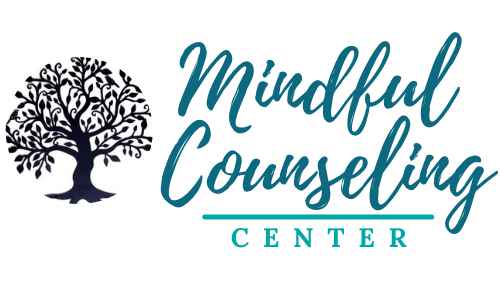Why is Mindfulness Important?

Here at the Mindful Counseling Center, we talk a lot about mindfulness. We promote it because we find it to be an aid to our clients in achieving many of their goals in counseling, and as a way to help people find meaning and satisfaction in their lives. In fact, we view mindfulness as a crucial key to well-being. By “well-being” we mean the behaviors that research suggests support health and happiness and foster positive connections (Keys to Well-Being | Greater Good –berkeley.edu).
What is Mindfulness?
Mindfulness involves paying attention in the present moment, intentionally and without judgment. It is practiced through noticing/observing and accepting your thoughts, emotions and sensations.
While mindfulness may sound like a natural state of the mind, our human brains are constantly jam-packed with data and images to process, making it hard to naturally achieve the sensory focus called for in this state. Let’s talk a little more about this situation.
The nature of thoughts, feelings and bodily sensations is that they are ever present – they come and then they pass. Some will capture our attention more than others. We can get “lost” in thoughts, feelings and sensations. Before we realize it, they can take us away from the present. Often, instead of being present, we are thinking about/replaying/rehashing events from the past or thinking/worrying/planning about things to come in the future.
Mindfulness practice is about training your mind to notice where your thoughts, emotions and sensations take you. Then, rather than getting struck in ruminations about the past or worry about the future, it is about bringing your attention back to the present through focusing on your senses, especially the breath.
Critical in this process of observation and acceptance is self-compassion—engaging in the moment in a gentle, noncritical way. (See our blog, Cultivating Self-Compassion.)
The more we incorporate mindfulness practice into our daily routines, the better we get at it and the more useful it can be to us. (Note, however, that while mindfulness can be promoted with activities such as guided imagery, meditation, yoga, etc., it is not synonymous with them (D. Davis & J. Haynes, What are the Benefits of Mindfulness?-apa.org). Rather, mindfulness is a state that can be facilitated from participation in such activities.)
Benefits of Mindfulness
So how does mindfulness help us out on a daily basis? 11 Proven Benefits of Mindfulness (Mindfulness.com) identified these key benefits of mindfulness:
- It helps ease anxiety and depression.
- It reduces stress and improves mental resilience.
- It improves focus and efficiency.
- It hardwires your brain to be more calm and less reactive.
- It improves sleep.
- It improves the quality of relationships.
- It increases personal happiness and fulfillment.
- It improves physical health.
- It slows aging and extends life.
- It increases self-compassion.
- It makes you less biased and more objective.
Pretty amazing potential impacts, huh? For more about the benefits of mindfulness, click on the article above. Another resource is What are the Benefits of Mindfulness?-apa.org.
Mindfulness in Therapy
Mindfulness has worked its way into mental health because of its benefits, especially those to cognition (processes involved in acquiring knowledge and comprehension) and well-being.
Mindfulness techniques in therapy can be useful for people who want to decrease the hold that anxiety and depression have over them, reduce their stress and increase their inner calmness, increase the self-awareness, compassion and satisfaction in their lives, and more. While our therapists employ an array of therapeutic modalities, they all seek to mindfully meet clients where they are at in the present, helping them explore their unresolved issues and/or barriers to thriving in their lives.
Cultivating Mindfulness in Self-Care
More generally, mindfulness practice can play a role in facilitating self-care. Our Self-Care Support Program offers opportunities for you to cultivate mindfulness in your daily life, focusing on:
- Exploring ways to utilize mindfulness practices to better cope with stressful and difficult situations, generate a sense of gratitude and evoke heightened contentment and enjoyment.
- Inspiring you to prioritize your well-being, nourishing those qualities within you that will help you balance the positives in your life with the hardships, so that you can grasp inner peace and joy in times of ease and struggle.
Article by Kristin Littel
Related Blogs: Habits for Self-Compassion and Mindfulness, Balancing Suffering with Healthy Habits, Riding the Wave of Anxiety Walking Mindfully
